Is Kenya Safe to Visit? 10 Health and Safety Tips for Travelers
How bad is crime in Kenya? Should the fear of terrorism stop you from visiting? Frequent visitor Alicia shares her tips on how to stay safe and healthy and avoid trouble.
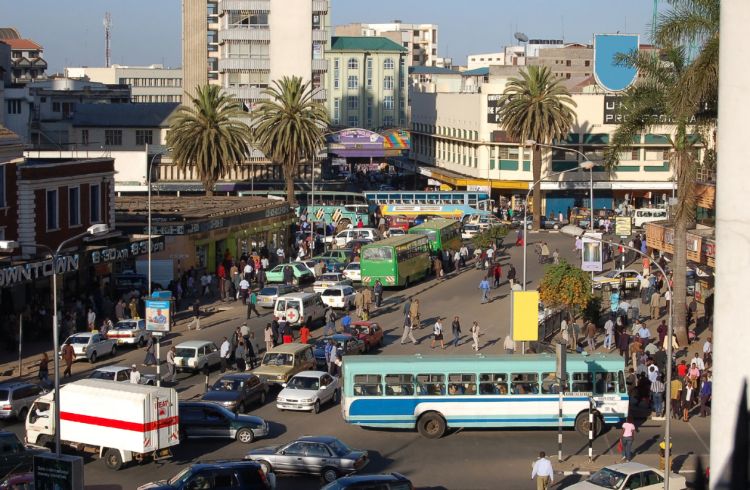 Photo © iStock/millerpd
Photo © iStock/millerpd
While Kenya is a safe destination compared to some surrounding African countries, there are issues with crime in major cities such as Nairobi, and many government travel advisories warn travelers of the threat of terrorism. The overall 2024 crime index for Kenya is 56.8, the 34th highest in the world. However, most crime is concentrated in the cities or along the Kenya-Somalia border. Check your Government's travel advice for the latest information.
Travelers will always attract unwanted attention from beggars and potential pickpockets. From street scammers to more serious threats, a little common sense goes a long way in Keyna, and staying up to date on the local situation is essential no matter where you go. These are the things you need to know to stay safe in Kenya.
- Crime in Nairobi
- Food hygiene in Kenya
- Is tap water safe to drink in Kenya?
- Malaria and travel health tips
- Politics, protests and civil unrest in Kenya
- Road safety in Kenya
- Hiking and wild camping in Kenya
- Terrorism in Kenya
- Is Kenya safe for LGBTQ+ travelers
- Is Kenya safe for female solo travelers?
1. Crime in Nairobi
Nairobi has a bit of a reputation, so much so that it was nicknamed “Nairobby.” That being said, crime levels and safety have very much improved over recent years. Violent crime is rare but petty crime can still be an issue. In general, petty crime involves pickpocketing and theft, and on rare occasions can be confrontational. As such, it is important to be aware of your surroundings and belongings on public transportation and in crowded places in any urban setting. Pickpocketing isn’t uncommon in crowded clubs and festivals. Be careful with your personal belongings, or better yet, leave everything that you don’t need at home if you know you’re going to be attending a crowded event.
For the most part, I walk freely in Nairobi and other Kenyan towns during the day. I feel comfortable and have personally had no issues. At night, it is best to take some form of motorized transportation instead of walking to avoid any potential incidents.
A couple of neighborhoods in Nairobi should generally be avoided if you’re going on your own. These neighborhoods include Kibera, which is the largest slum in East Africa and downtown Nairobi, including the infamous River Road. While, like all areas of Nairobi, crime rates are improving in these spots, it still can be an issue. The neighborhoods are crowded and not typically areas where tourists go, so you may draw attention unwittingly. However, if you are interested in experiencing some of these neighborhoods, I would recommend finding a walking tour. There are some fantastic ones through Airbnb Experiences and local companies that connect you to guides from Kibera and the city center who can help you safely navigate the streets while providing a background to the neighborhood’s history and culture.
Emergency numbers
- Police hotlines: 999, 112, or 911.
- Fire and ambulance services: 999.
2. Food hygiene in Kenya
While it’s not a major cause for concern, be aware of what food you eat and where, like in most countries. Kenya has an incredible amount of fresh local fruits, like pineapple, passion fruits, mango, and avocado. All peeled fruits are safe to eat. Proceed with more caution when it comes to fruits and vegetables that aren’t peeled or cooked. I don’t avoid them all together but I’m more selective with where I eat them. From Nairobi to the coast, there are plenty of fantastic restaurants serving salads and vegetable-abundant dishes from the growing number of local farms. If you’re planning to check out some street food stands, which is my personal favorite way to explore a country’s culinary scene, you’ll want to be cautious about eating meat, as it’s uncertain how long it’s been sitting out.
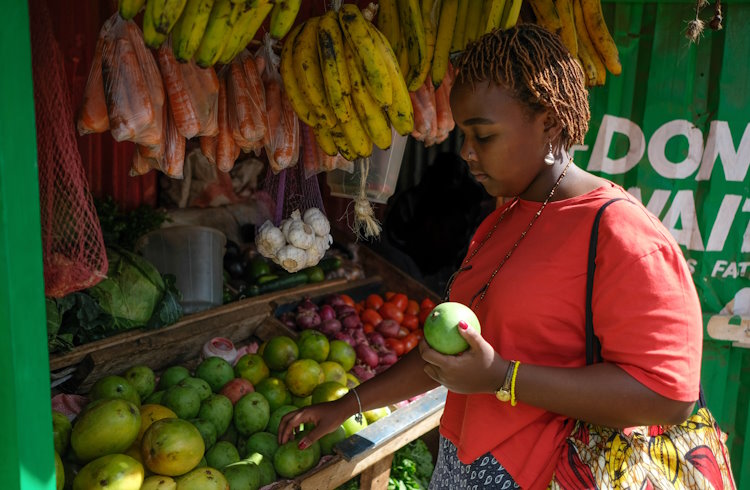
3. Is tap water safe to drink in Kenya?
Don't drink tap water unless it has been boiled or purified. Carry a reusable water bottle and purification tablets or a water filter bottle, such as the Grayl water bottle, and keep it topped up with purified water to avoid buying bottled water. If you’re out of water, most restaurants sell bottled water. Many of them have filtered water as well—just ask!
Planning a trip to Kenya? Find out how travel insurance can cover lost or stolen baggage, sudden illness, or other travel mishaps.
4. Malaria and travel health tips for Kenya
Certain areas of Kenya are at high risk for malaria, while others are not. The coast and Lake Victoria generally have the highest incidences of malaria. Nairobi is typically a low-risk area for malaria. The Kenyan highlands (above 2500m) of Nyanza, the Rift Valley, and the Central, Eastern, and Western Provinces are also lower risk.
Malaria-carrying mosquitos only come out in the evening so wearing light layers during these hours can reduce the risk of infection, along with some applying mosquito repellent. Most beds are equipped with mosquito nets for protection while sleeping. If you do suspect that you are showing signs of malaria (fever, low energy, chills, lack of appetite—similar to typical flu symptoms that occur in two-day cycles), it’s best to get tested. Clinics throughout the country are well-equipped to deal with malaria (typically much more so than in malaria-free countries) and you can easily get a test and medication if needed.
Generally, I found the clinics and health care systems in Kenya quite good and definitely better than those in other East African countries. Particularly in Nairobi, you’ll be able to find a large concentration of hospitals and clinics that can support you should you need to seek medical attention. The pharmacies are well stocked as well for your basic goods.
5. Politics, protests, and civil unrest in Kenya
Political tensions can run high in Kenya. While it is unlikely you’ll encounter political violence, stay connected to local news to be aware of current situations while in the country. Avoid protests and demonstrations should any take place, as they run the risk of turning volatile or violent. It’s best not to travel during a general election as well, to play it safe.
6. Road safety in Kenya
Motorcycles are a common form of public transportation and a quick and easy way to get around Nairobi’s insane traffic. However, many of the roads are under construction or potholed, and motorcycles are competing with trucks, cars, and a lot of crazy road rules (or rather, lack thereof). Having a helmet with you is really important if you plan on catching motos. I was in two motorcycle accidents as a passenger in less than a year in Nairobi and refused to get on one without a helmet!
If you choose to ride, consider travel insurance and be sure to comply with its requirements, such as riding with a helmet and being appropriately licensed to ride in your home country at your destination.
7. Hiking and wild camping in Kenya
With the exception of a few hills on the outskirts of Nairobi, hiking and wild camping are fairly crime-free in Kenya—and a fantastic way to experience this East African country. Your bigger concerns are wildlife and nature. If you’re planning to take on more challenging, high-altitude hikes like Mount Kenya, come prepared with warm clothes to protect against freezing temperatures and rain, as well as adequate food and water, and medicine for altitude sickness as a precaution. On the other extreme, spots like Lake Magadi near the Tanzania border can experience extremely hot temperatures. For hikes and camping in those regions, it is important to bring shade, water, and electrolytes in case of dehydration. When it comes to wild camping in places like Tsavo National Park and near other nature reserves, be aware that wildlife lives there. Read up on safety and guidelines for wildlife encounters before heading out on a solo adventure.
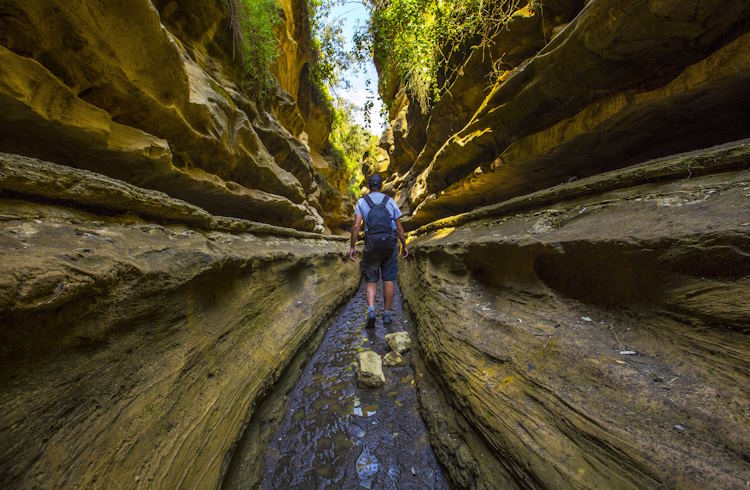
8. Terrorism in Kenya
Although there have been a handful of isolated attacks in Kenya by Al Shaabab from neighboring Somalia, these incidences are rare. Borders with South Sudan, Sudan, and Somalia should be avoided unless going with a local guide, as localized conflict may spill across.
9. Is Kenya safe for LGBTQ+ travelers?
Despite the government laws against LGBTQ+ relationships, Nairobi has a fairly prominent LGBTQ+ community. Areas outside of Nairobi are much more conservative and traditional but coming across LGBTQ+ events and parties is not uncommon.
10. Is Kenya safe for female solo travelers?
For the most part, female travelers to Kenya will have a trouble-free trip. The locals are friendly, respectful, and hospitable and most people speak English.
There have been reports of women experiencing harassment by men. Avoid hanging out at the beach or walking around alone at night. Take a taxi if you plan to head out at night, even if you are with others. And as you would at home or anywhere else, avoid getting too intoxicated.
Nairobi and the central areas of coastal towns like Diani and Watamu are quite western and I dress as I would in Europe or the US. In rural regions, more conservative dress – think loose long dresses and skirts, or loose pants and tops – is best to be culturally sensitive and draw less attention.
Related articles
Simple and flexible travel insurance
You can buy at home or while traveling, and claim online from anywhere in the world. With 150+ adventure activities covered and 24/7 emergency assistance.
Get a quote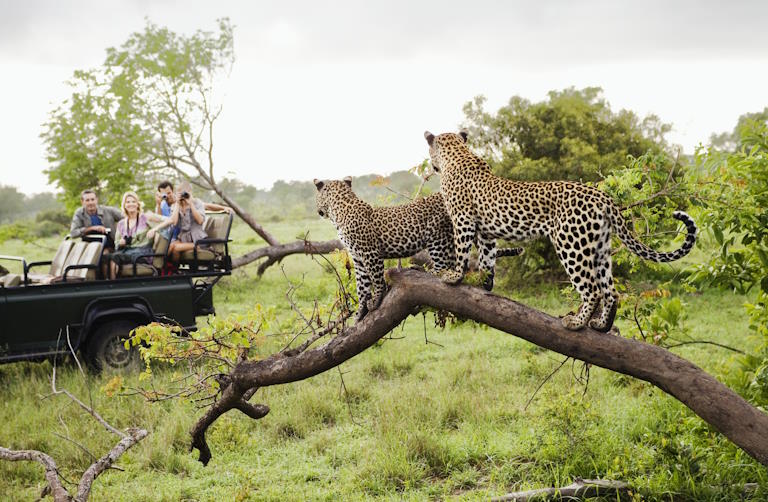
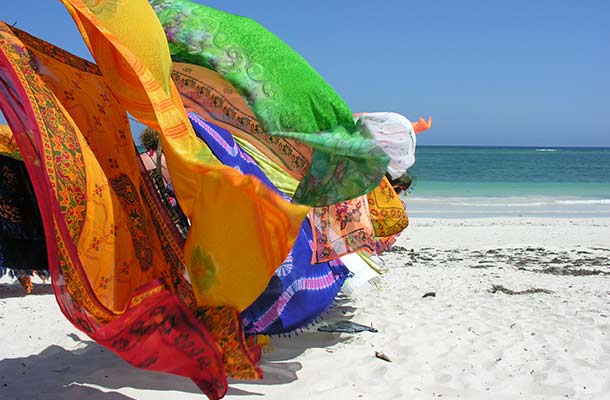
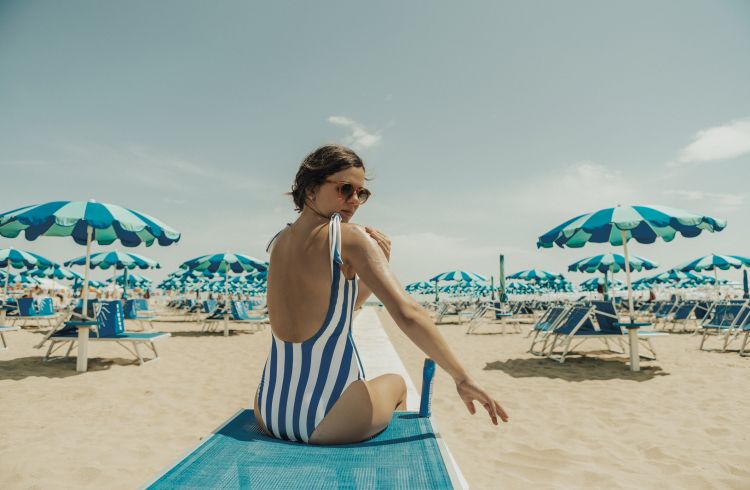
6 Comments
I'm a westerner living in Nairobi nearly 9 years and this article is laughably, shamefully inaccurate. Clearly written with old information and borrowing from articles pinched off the internet. EVERY city has extremely unsafe areas, and Nairobi is no exception. Go there and get mugged, pretty simple. As a visitor you have ZERO reason to be in any of those places unless you are keen on a poverty porn/white savior tour of the slums and even those can be done safely if gawking at the stunningly less-fortunate floats your boat. The safe areas of Nairobi are captivatingly beautiful and perfectly safe, assuming you take the same precautions you would anywhere else. Terrorism is a concern globally now, and we honestly feel as safe or safer here in that regard than anywhere in Europe or North America. And we were in the middle of the Westgate mall terror attack in 2013, so we know of what we speak. The greatest dangers here by far are road accidents (especially after dark and especially outside of cities), getting conned into giving people money or getting set up to be mugged because you are an idiot, and the standard potential mayhem that ensues wherever humans and alcohol mix, just like anywhere else. Use your head and you'll be fine. If you are female, looking men in the eyes longer than just a glance is often interpreted as an invitation for "escalated interaction", again just like anywhere else but to a bit of a higher degree here. The food here is fantastic- Swahili, Indian, Arabic, East & Southeast Asian, continental, etc. The only thing that is hit or miss is the quality of the beef, which is only good about half the time. You definitely CAN eat salads, fruit, etc in the restaurants. There are restaurants that are as glitzy and sanitary as you will find anywhere on the planet, many with fantastic outdoor ambiance. The prices are very, very reasonable even at the nicest places with but a few exceptions. Way cheaper than the expensive parts of Europe and significantly cheaper than North America. There are also plenty of mid-level restaurants that lack the glitz or ambiance but have excellent food with great prices. You need to be cautious eating in the streets or in very cheap eateries, just like anywhere else- duh. And no eating with your left hand? Stunningly idiotic comment that is simply untrue and something I have never heard before. Seems clearly a reference to the minority Muslim population of Kenya and is simply a stereotypical, ethnocentric trope. The author should be embarrassed. Regarding lodging, there is a wide array ranging from high-end hotels that rival anything anywhere else, to very budget stays that need to be selected carefully to avoid unsafe neighborhoods. The Airbnb selection is also a great option. Downtown Nairobi is safe during the day but not particularly attractive for places to stay with things to do and see nearby either day or night. Get out into the leafy, safe suburbs for better lodging surrounded by a lot more to do and see. To get around, don't take the public busses, which are unsafe for crime and road safety, unless you are a hardcore budget backpacker type who is unbothered by such things. Uber and the other ride hailing services proliferate and are cheaper than you're used to back home. Hop on the back of a motorcycle taxi (boda boda) if you're brave, have good insurance and like a thrill- they are the fastest and cheapest way to get around town if you're up for it. At the airport, if you don't have transportation prearranged you can take one of the yellow airport taxis which are generally safe but an even better bet is to go up to one of the drivers holding signs for other travelers and ask them if there is any other car from their company immediately available at the airport. (These should be the drivers holding professionally-produced sign boards, not just pieces of paper). Chances are there is already one at the airport waiting for opportunistic fares, in which case the available driver will walk over to where you are and lead you to their vehicle. Make sure the company's logo appears on the car and you are golden. If the company you talk to has no car already at the airport, just ask a driver holding a sign from a different company. They will all see what you are up to and the ones with cars immediately available will make themselves known. Of course it's always best to have transportation arranged in advance, and you probably shouldn't do this if you are travelling alone while female. So yes, Nairobi and Kenya are very different than what you're used to at home, and they are phenomenal. Nairobi weather is the best in the world. The beaches are incredible, the wildlife and nature are stunning, and the people are friendly, fun, and welcoming. Ignore the crap in this article and visit Kenya, you will love it.
Am a Kenyan and I can authoritatively say that nairobi and Kenya as a whole is not a safe country. You must be alert whether travelling or at home. Here are the incidences that will buttress my shoutings.
1. When I was at UON, those days, I was in session and I travelled home for a function. Coming back, I travelled at night. The bus arrived in Nairobi at 3am. As bold as I was, I said I will go straight to campus. Which is 15 minutes drive from where I was to take the matatu. On walking along tom mboya street to go and board a matatu, a security guard came from one of the buildings and told me to go with him. Since he was in uniform, I followed him and he told me 2 guys who were walking behind me were about to rob me. He had watched me walking down the street and formed an opinion that that guy is going to be robbed. We entered inside the building and he closed the metallic door with metal grillings behind. And the 2 men stood there outside, stranded. I stayed with the security guard until 6am. Then I went to campus. I thanked God for sending that security guard to help me.
2. While still in campus, I can't remember exactly the year but my friend told me when he was in Nairobi walking down to the street going I don't know where, one man followed him all along for a very long time. Until he had to turn back and shout at him that he backed off.
3. After finishing campus, I got a job. Now we had to go for orientation. After finishing the exercise we were givent posting letters and off I went to go and pack my things from an estate in Nairobi where I lived with a relative to go to my new job. Crossing Haille Selassie ave, a guy snatched my mobile phone which was in my trousers pocket.
4. While at my job, it was in upcountry in one of the small towns. My manager went home for a weekend. He came back on Monday and said robbers raided his his home while he was there with his wife.
5. This one is a serious one. While at my job at upcountry, I used to travel to Nairobi over the weekend since I have strong connections there. On one particular weekend, I was travelling to my job from Nairobi. I took the night bus on a Sunday. So that I will be at my house at around 3am, catch a lil sleep, then go to work a few hours later. At around 2am when we were almost near my destination, we passed a police road block. The police checked on us, found everything is ok and they let us proceed with our journey. Barely had we left the police road block, we negotiated a corner and there infront of us was another road block. This time it was a road block with stones and tree stumps. The robbers. The driver of the bus had no option but to stop. They came in, they had AK 47s. One of the took over the bus and started driving on one of the feeder roads to the bush. As others ransacked us. They took our phones, money, everything. They beat the conductor of the bus whom they said had been rude to them earlier on. I don't know what he had done to them. Seems they knew him. They also slapped me becoz I looked up at them on their faces. We were supposed to hand them phones and money while looking down. They found a gun on the floor in the bus! They then became furious. They said there was a police officer ammongst us. The theory was there was an armed police officer in civilian travelling as a passenger who was armed with a pistol. When he saw them with AK 47s, he knew he had no chance. The best thing for him was to offload his pistol becoz if they could have found it on him, they could have dealt with him accordingly. Anyway, they reached their destination, in the bush. Parked the bus, and took one beautiful lady who was in the bus with them. 2 remained with us and others went with that lady. I think they raped her. They came back with her after about 30 minutes and then left us and disappeared I don't know where. Now helpless, our bus driver took over the bus, drove us to the bus offices which were not far from my house where I lived. I heard some passengers say they know the robbers etc. Now at the bus offices, the police arrived at 6am. They took information from us on what happened. They asked the lady if they raped her, at first she said no, she didnt want to admit due to trauma and stigma. I felt sorry for her. Finally she agreed and said yes they raped her when they took her out of the bus. Becoz I was supposed to be at work shortly, I left them there and went my way. I was exhausted on that day at work coz I didn't sleep. I was just hitting the keyboard buttons with too much sleep in my head.
So did u hear that? Kenya is not safe. Well I love my country but we have to be honest. That's y when I will go back home soon-. (am now based outside the country), I will hire personal security becoz I dont anything unpleasant to happen to me.
Quite an unfortunate article. This is meant to paint a bad image of Kenya. Nairobi is the most beautiful city in Africa and in my own opinion, very safe because I live here. Am sure the writer has never traveled to Kenya. This article should be pulled down as it's not factual.
I have been to Nairobi countless times in the last two years for work never had any issues I have been all over and even to naivasha and never had one single issue. Everyone is friendly and helpful and glad to see you enjoying their country. This article paints a bleak picture and doesn’t even go into all of the fun people can have.
Getting raped and robbed is not fun
Tap water is safe in Nairobi. You can even feel the chlorine smell. Just imagine how water borne diseases would break out if this wan't the case.